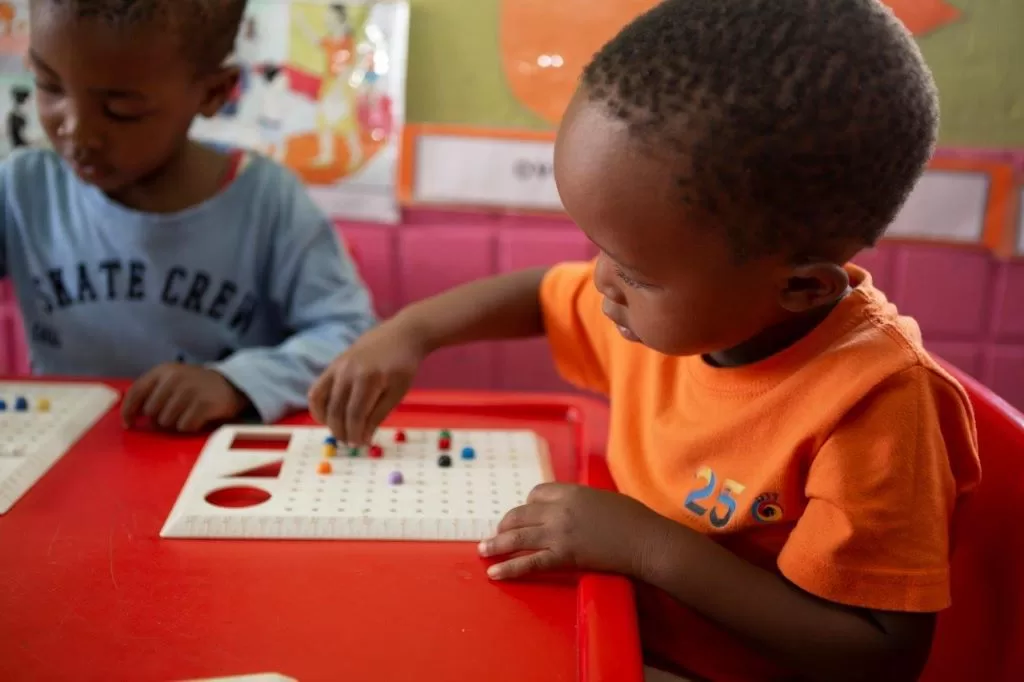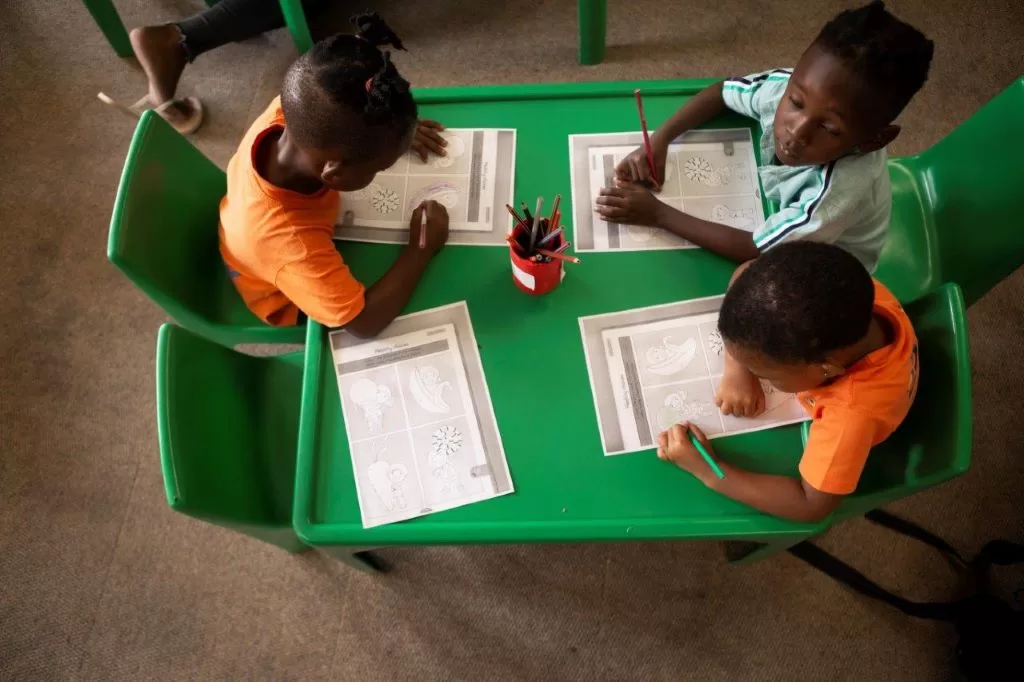ECD Centres and Disability Inclusion: Addressing Barriers and Building Readiness
Johannesburg, South Africa – As South Africa observes Disability Month this November, Afrika Tikkun Bambanani shines a spotlight on the inclusivity of children with disabilities in Early Childhood Development (ECD) centres across the country. With calls to integrate children with disabilities into mainstream learning environments, there is a need to evaluate whether ECD centres in South Africa (SA) are adequately prepared to support children with diverse needs.

ECD centres play a critical role in early development, establishing the foundation for a child’s future learning and growth. However, research and recent assessments show that the majority of ECD centres in SA are not yet equipped to meet the needs of children with severe disabilities. Theresa Michael from Afrika Tikkun Bambanani, a prominent advocate for inclusive ECD practices, highlights a pressing need for advancements in teacher training, infrastructure, and collaborative support.
Current Gaps in Teacher Training for Inclusion
“Many ECD teachers feel unprepared and under resourced to support children with disabilities. Recent findings from the Department of Basic Education (DBE) show that only a small percentage of ECD teachers have undergone specialised training in inclusive education, which is essential for managing classrooms with diverse needs,” Michael says.
Afrika Tikkun Bambanani is taking proactive steps to address this gap. Through targeted training programs, the organisation equips ECD teachers with practical skills to create inclusive classrooms, where children of all abilities feel supported. “It is essential to have teacher training programs focused on inclusion,” adds Michael. “By investing in training, we can better support teachers to meet the needs of every child.”

Infrastructure Limitations Hindering Accessibility
A lack of infrastructure in many ECD centres is another barrier to full inclusion. Limited resources mean that many centres do not have ramps, accessible restrooms, wide doorways, and adapted play areas that are essential for children with mobility challenges. The absence of such basic infrastructure not only limits access but can also be a source of frustration and exclusion for children with disabilities.
“To ensure that all children feel welcome and included, ECD centres need to invest in creating spaces that are physically accessible,” says Micheal. “This includes adapting furniture, providing sensory play areas, and ensuring that children with hearing or visual impairments have access to appropriate learning tools.”
Collaborative Efforts Needed for Lasting Impact
While progress has been made in promoting inclusive education, Afrika Tikkun Bambanani emphasises that more action is needed. Insufficient funding remains a challenge, particularly for ECD centres in rural areas that struggle to make necessary adaptations.
“Partnerships between the government, private sector, and non-profit organisations can help bridge this gap. By working together, stakeholders can ensure that ECD centres receive the funding and support needed to upgrade their infrastructure and train their teachers,” says Michael.
In its partnership with the Department of Basic Education (DBE), Afrika Tikkun Bambanani works closely with NGOs, community members, and corporate partners to address the need for inclusive ECD practices. This collective approach aims to provide comprehensive support to ECD centres, helping them make sustainable adjustments to accommodate children with disabilities.
Afrika Tikkun Bambanani’s Commitment to Inclusive Education
Afrika Tikkun Bambanani has been a leader in driving inclusive education, implementing teacher training initiatives and supporting infrastructure upgrades. By working directly with ECD centres, the organisation is enabling them to provide accessible, high-quality education for children of all abilities.
“Our mission is to foster an educational environment where no child is excluded,” said Michael. “ECD centres should be equipped to welcome every child, providing a foundation for an inclusive South African society.”
Looking Ahead: A Vision for Inclusive ECD Centres
As Disability Month highlights these issues, Afrika Tikkun Bambanani calls for unified action across sectors to ensure inclusive practices in ECD centres nationwide. By prioritising training, infrastructure improvements, and community involvement, South Africa can build an inclusive educational framework that benefits all children.
To support inclusive practices in ECD centres, Afrika Tikkun Bambanani encourages increased funding, public awareness, and a commitment from stakeholders across all levels of society. The goal is clear: create a future where every child, regardless of ability, is provided with the resources and support needed to thrive.
Visit https://afrikatikkun.org/ to learn more or to contribute to Afrika Tikkun’s impactful initiatives.




























